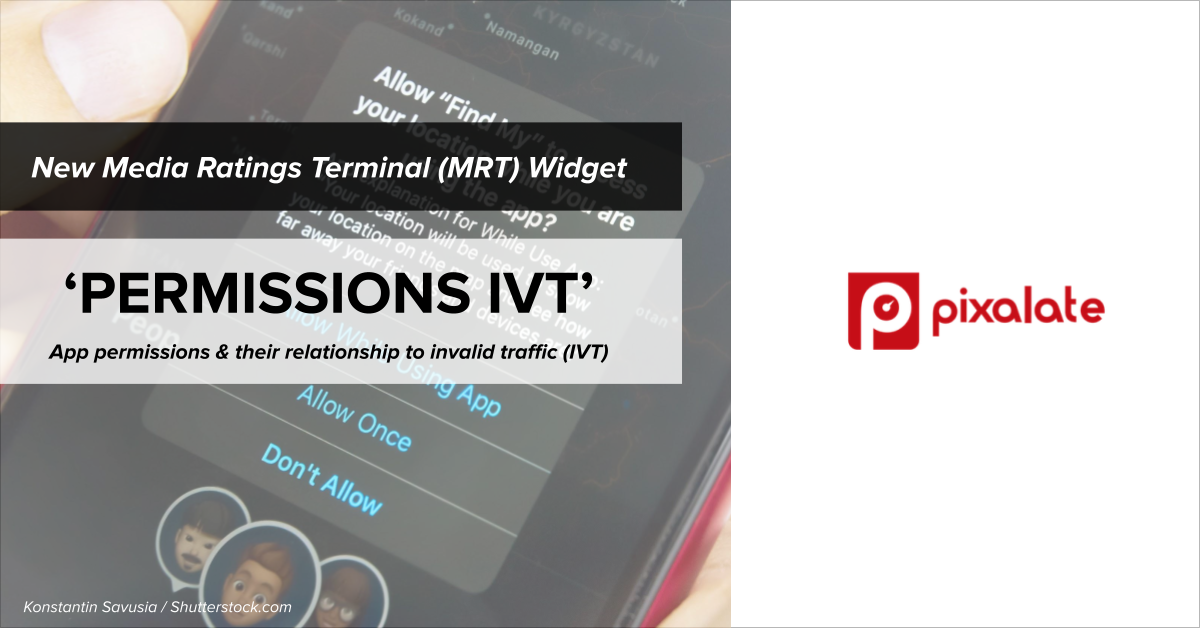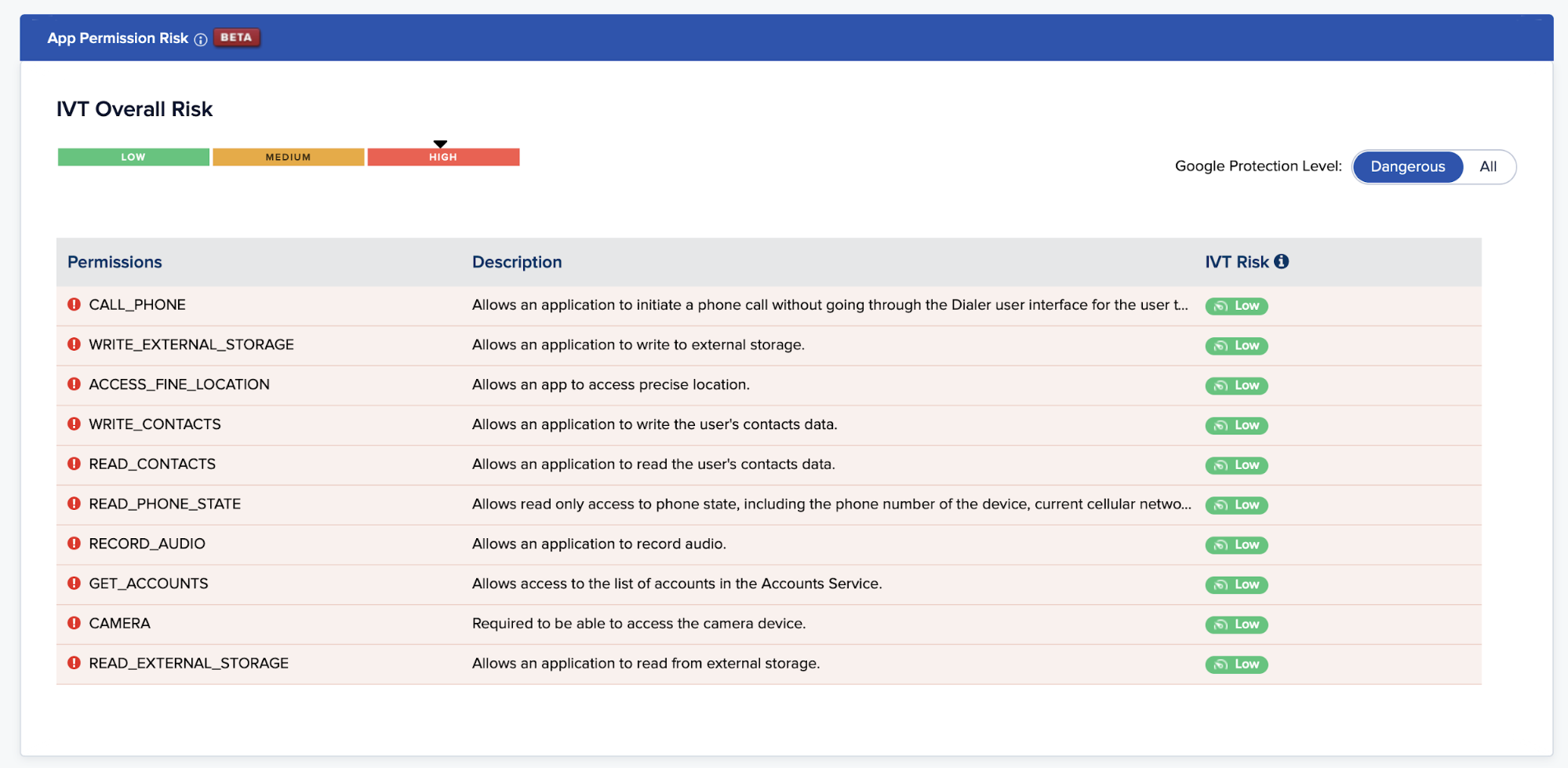
At Pixalate, we work to provide our clients with fraud and compliance data regarding the digital advertising supply chain and the most relevant information for their ad-buying. Our aim is to move the industry forward with actionable insights that serve to make our entire ecosystem safer and more secure. With that aim in mind, we are excited to provide you with greater detail and understanding regarding a new feature within the Media Ratings Terminal (MRT): The Pixalate Permissions IVT Widget.
Permissions IVT provides our clients with a unique view into risks stemming from app permissions — analysis that is not available anywhere else. Permissions IVT provides an understanding of apps that may have high invalid traffic (IVT) rates related to the permissions the app requests.
Apps request, and even require, that certain “permissions” be enabled for such apps on the users’ phones. Permissions are required for apps to access or use particular capabilities on a device. Permissions can include:
To be clear, many apps require certain permissions to function properly. For example, one cannot use a mapping app without providing permission for the app to access GPS coordinates; and photography apps require access to your phone’s camera. However, not all permissions requested by apps are necessary for such apps to function as one would expect. Permissions IVT is designed to highlight the level of invalid traffic (IVT) risk that may be associated with excessive permissioning.

The new Permissions IVT Widget in Pixalate’s MRT was developed for Google Android apps and leverages the permission framework established by Google. For common permissions that an app may request, Google identifies security and privacy risks presented by such permissions. While there are permissions outside of Google’s list, Permissions IVT only considers those defined by Google.
The Permissions IVT widget aims to explain which apps have concerning, or even unnecessary, permissions, which may be a signal for increased IVT risk. We highlight these risks via correlation between IVT and the applicable permissions, particularly highlighting IVT risks that spring from permissions that are unnecessary for an app’s functionality. More specifically, we examine the following:
From there, apps are scored within app store categories across these three questions. The intersection between permissions and categorization helps to develop a score of high, medium and low likelihood of IVT risk coming from permissions.
In the MRT interface, users can toggle between all permissions and the ones identified as dangerous, or concerning, for each app.
At Pixalate, we believe that Permissions IVT is a critical tool in preventing IVT and a valuable asset for our clients in evaluating partners and maintaining the highest traffic quality standards.
Learn more about Pixalate's Media Ratings Terminal (MRT).
*By entering your email address and clicking Subscribe, you are agreeing to our Terms of Use and Privacy Policy.
These Stories on Company News
*By entering your email address and clicking Subscribe, you are agreeing to our Terms of Use and Privacy Policy.
Disclaimer: The content of this page reflects Pixalate’s opinions with respect to the factors that Pixalate believes can be useful to the digital media industry. Any proprietary data shared is grounded in Pixalate’s proprietary technology and analytics, which Pixalate is continuously evaluating and updating. Any references to outside sources should not be construed as endorsements. Pixalate’s opinions are just that - opinion, not facts or guarantees.
Per the MRC, “'Fraud' is not intended to represent fraud as defined in various laws, statutes and ordinances or as conventionally used in U.S. Court or other legal proceedings, but rather a custom definition strictly for advertising measurement purposes. Also per the MRC, “‘Invalid Traffic’ is defined generally as traffic that does not meet certain ad serving quality or completeness criteria, or otherwise does not represent legitimate ad traffic that should be included in measurement counts. Among the reasons why ad traffic may be deemed invalid is it is a result of non-human traffic (spiders, bots, etc.), or activity designed to produce fraudulent traffic.”

